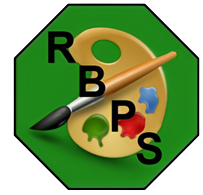Maths
Maths in Key Stage 1 and 2
Here at Richard Bonington Primary School we ensure the National Curriculum is covered in full by teaching maths through a mastery approach.
In 2019 we started to use 'White Rose' (WR) resource to support the teaching of maths. It is a scheme of work written to meet the requirements of the 2014 English National Curriculum. Teachers use WR as the main spine of their maths teaching, augmenting and modifying it with additional resources and strategies in line with children's needs and stage of development.
What Is Maths Mastery?
Teaching maths for mastery is a transformational approach to maths teaching which stems from high performing Asian nations such as Singapore. When taught to master maths, children develop their mathematical fluency without resorting to rote learning and are able to solve non-routine maths problems without having to memorise procedures.
A NEW WAY OF THINKING AND TEACHING
WHOLE CLASS MOVES THROUGH CONTENT AT THE SAME PACE
When teaching maths for mastery, the whole class moves through topics at broadly the same pace. Each topic is studied in depth and the teacher does not move to the next stage until all children demonstrate that they have a secure understanding of mathematical concepts.
TIME TO THINK DEEPLY ABOUT THE MATHS
Students are given time to think deeply about the maths and really understand concepts at a relational level rather than as a set of rules or procedures. This slower pace leads to greater progress because it ensures that students are secure in their understanding and teachers don’t need to revisit topics once they’ve been covered in depth.
BUILDS SELF-CONFIDENCE IN LEARNERS
In a traditional primary school maths lesson, children are put in different groups and given different content based on their anticipated ability. This means that from an early age children are classed as those who can and can’t “do maths”. Teaching maths for mastery is different because it offers all pupils access to the full maths curriculum. This inclusive approach, and its emphasis on promoting multiple methods of solving a problem, builds self-confidence and resilience in pupils.
DIFFERENTIATES THROUGH DEPTH RATHER THAN ACCELERATION
Though the whole class goes through the same content at the same pace, there is still plenty of opportunity for differentiation. Unlike the old model, where advanced learners are accelerated through new content, those pupils who grasp concepts quickly are challenged with rich and sophisticated problems within the topic. Those children who are not sufficiently fluent are provided additional support to consolidate their understanding before moving on.
Mastering Number
From September 2023, we will be using mastering number in FS2, Yr1, Yr2, Yr4 and Yr5. Mastering Number is designed to help children to embed good number sense including fluency and flexibility with number facts. The aim is, that over time, pupils will leave KS1 with fluency in calculation and be confident with numbers. This focuses on 5 main themes:
- Mathematical talk
- Subitising
- Spatial reasoning, gesturing and visualising
- Representation and structure
- Variation
We will also be offering a Parental Programme for FS, Yr1 and Yr2 linked to Mastering number. More details to follow.
Useful Maths websites
Online Maths Activities
We make a lot of use of online maths games and activities in school. Some of the links below are our most popular.
Why not try some of them out and let us know what you think…?
Why should I play maths games with my child?
Children make progress best as mathematicians when they regularly repeat skills and practise them until they become embedded. This can be quite a long process sometimes, and so the use of the context of an exciting game or interesting activity can be highly motivating. In our experience, our children learn best when they are having fun and that's what games are for!
- White Rose Maths - Home learning
- NrichProblem solving and challenge questions
- BBC Bitesize - mathsKey stage 2
- Maths ZoneGames and quizzes
- Top MarksLots of fun games to play with children of all ages.
- Times Tables RockstarsTimes table practise (need a log in)
- Maths is funWorksheets
- Primary Maths GamesGames covering all areas of maths
- ICT games - maths
Calculation policies
Below are some documents outlining the teaching strategies we use in school for addition, subtraction, multiplication and division.
These show a progression of the strategies throughout the school and parents can use them to support their children with their work.
Each function has a document showing the strategies we use to teach it and a document showing the pictorial representations children may use alongside resources we use in school.
NSPCC Number Day 2023

Number Day | NSPCC
It's maths, but not as you know it!
